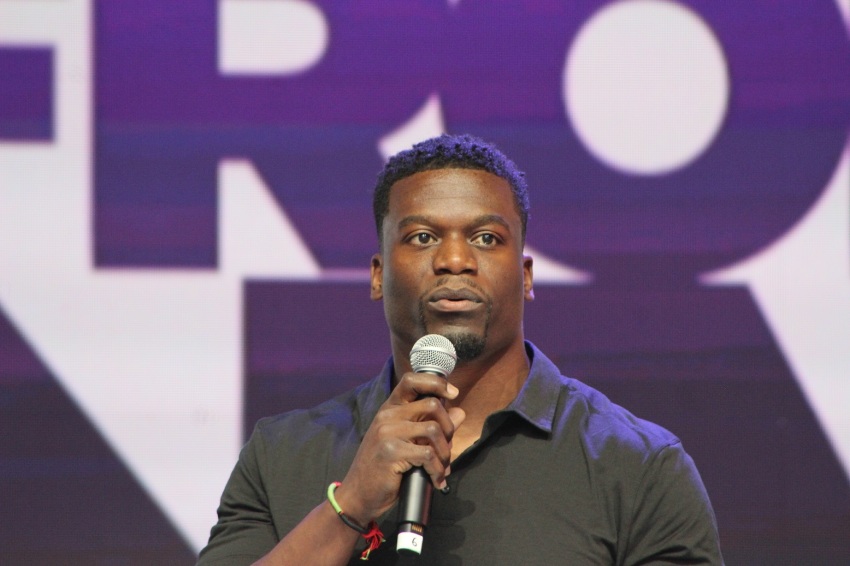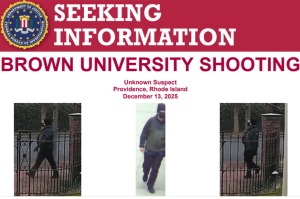Benjamin Watson says he would rather be 'woke' than 'quietly asleep'

Former NFL player Benjamin Watson, an outspoken pro-life Christian and author, has spoken out against those he believes — intentionally or unintentionally — are using the word "woke" to silence debate on racial justice issues.
The 41-year-old, who won Super Bowl XXXIX with the New England Patriots in his rookie year as a tight end, took to his blog over the weekend to define the term "woke," which has become often used in political dialogue in recent years.
He said that "woke" can be defined as being "rooted in an awareness of racialized violence against black people by white America, whether by individuals or institutions, carried out intentionally or in innocence."
"In essence, being 'woke' is understanding this double consciousness and all its implications. It is maintaining dignity, strength and pride while grappling with visitation rights in the land of your birth," the 41-year-old father of seven who played in the NFL From 2004 to 2019 wrote.
"Blackness is beautiful, but realizing you are a member of the 'other' brings both pride and precaution as one contemplates the perception white America, the majority culture, may have of your ilk. How you move, who you are and how you look may become a problem simply by virtue of caste."
Watson, author of the 2015 book Under Our Skin: Getting Real about Race; Getting Free from the Fears and Frustrations that Divide Us, stated that one of the earliest public appearances of "woke" in the black vernacular is in the 1938 song "Scottsboro Boys."
The song is about nine black teenagers falsely accused of raping two white women on a train in 1931.
"I made this little song about down there," musician Lead Belly said. "So, I advise everybody, be a little careful when they go along through there — best stay woke, keep their eyes open."
Watson said that in 2014, the word became "intertwined with the Black Lives Matter movement," which he said placed it at the "front and center in the public square and a burgeoning national reckoning on race."
"And for some Americans, that was a bridge too far," he wrote.'" Woke' and its undefinable cousin CRT became the defense mechanism of choice. Maybe it was the uncertain circumstances surrounding Michael Brown's killing compounded by calls for police accountability."
"Maybe it was the summer of 2020 when the murder of George Floyd ignited a global movement as millions of people from every sociodemographic group marched around the globe and corporations pledged billions of dollars to racial equity initiatives," he continued. "Maybe it was a renewed emphasis on how history impacts the present and a generation of young people (and older folks) who were suddenly learning history, shining a spotlight on what had previously been relegated to obscurity. Maybe it was the threat of a power swap in what some consider to be a zero sum game."
Watson suggests that being "woke" in today's society is an "enduring necessity" because "the residue of anti-blackness still resides in the underpinnings of American society."
Silence and ignorance are never the answer, he noted.
"To be 'woke' is to desire the justice America promised and to keenly understand where it has miserably fallen short AND valiantly overcome. Some people would rather all of us stay quietly asleep," Watson stated. "I'd rather stay 'woke.'"
Watson said he grew up at a time before "woke" became embattled in a "culture war" in which "misappropriation and redefinition are the weapons of choice."
"It is a menacing and cruel transaction when a larger power broker sledgehammers a monument of remembrance and hurls its fragments as weapons of destruction against the community it was erected to empower," Watson asserted.
"A quick google search of 'woke' will produce a sludge fest of articles and videos of politicians and pundits out-woking each other, stoking fear for likes and votes. They have purposefully misled hordes of followers without apology."
One way politicians and others in society misuse "woke," Watson stated, is by hiding behind the word as "a shield preventing engagement" on issues involving racial inequalities.
"Much like the term' race card,' those who abuse the word 'woke' sound like a rival sibling putting their fingers in their ears and screaming 'la la la la' to drown out conversations they do not like," the former University of Georgia standout wrote.
"It discounts and delegitimizes a documented history of unjust, state-sanctioned attacks on black people through policy, programming, and personal prejudice. What's so confusing about this phenomenon is that many who would readily confirm that such injustice exists and rightly condemn it will hide behind 'woke' as a shield preventing engagement on the matter."
"The cognitive dissonance is alarming," he continued. "Not only is the word offensive when uttered by those who have no concern for black people, but it also damages those of all creeds who do."
He argues that misuse of "woke" will stifle "the conciliation that will promote redress and produce solutions to ongoing disparities."
Watson said he cringes when he hears "reckless usage" of the word.
"I hear what generations of black Americans have heard through the words and actions of equality's opponents," he stressed. "I hear that our concerns about policing are contrived, that documented employment discrimination is complaining and that unfair housing appraisals are coincidence. I hear that our pain and our lexicon of liberation can easily be erased at a whim."
During a recent discussion with a white friend, Watson said his colleague used "woke" in a "casual" way. As a response, Watson asked his friend what "woke" meant to him.
"I'm not sure exactly. It's basically about policy and people who are pushing a more liberal agenda," Watson quoted his friend as responding.
Watson found his friend's response "candid, but equally concerning."
"For him, this watchword had no specific meaning, depth, or precise definition. Instead, it had come to represent a smorgasbord of ideals from sexuality to social justice that, in his view, prioritized political correctness, undercut American values, and threatened the future of religious freedom," Watson wrote.
"With such a wide swath of issues strategically placed in the 'woke' bucket, there are several that I am patently against as well. But their purpose is to poison the well and block progress. Those ancillary issues have little to do with 'woke.'"



























